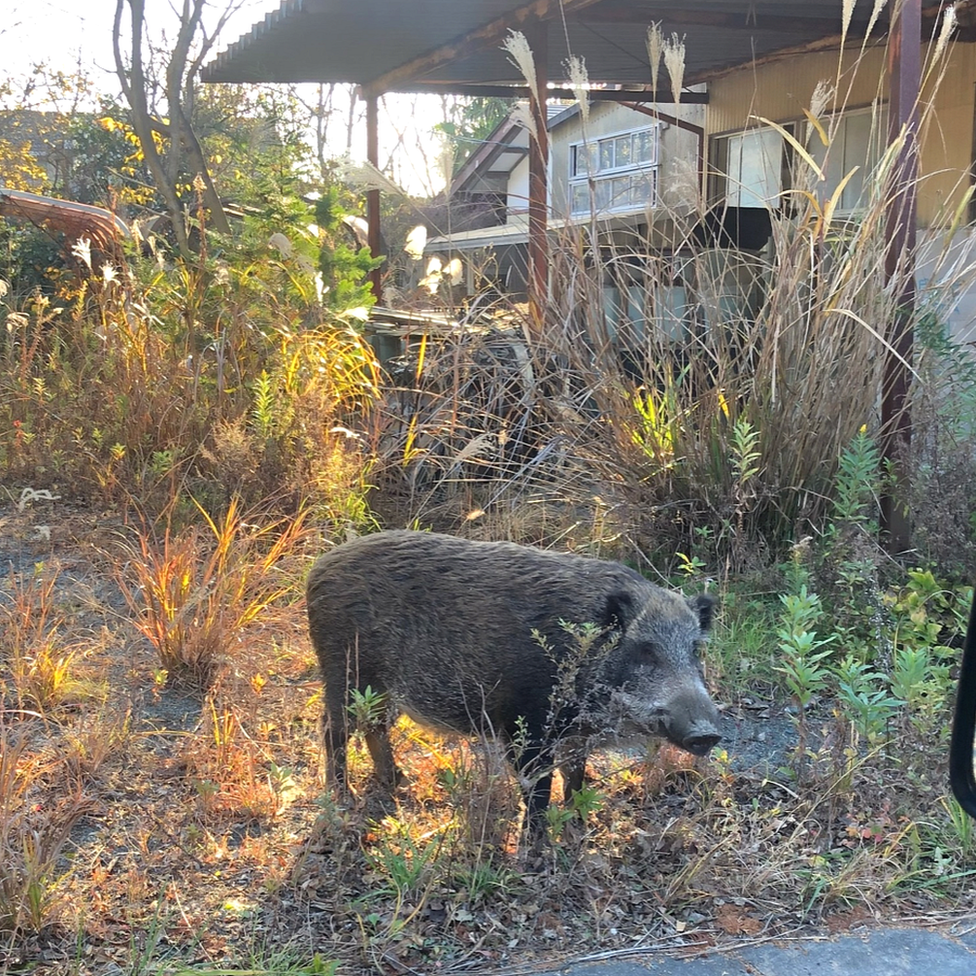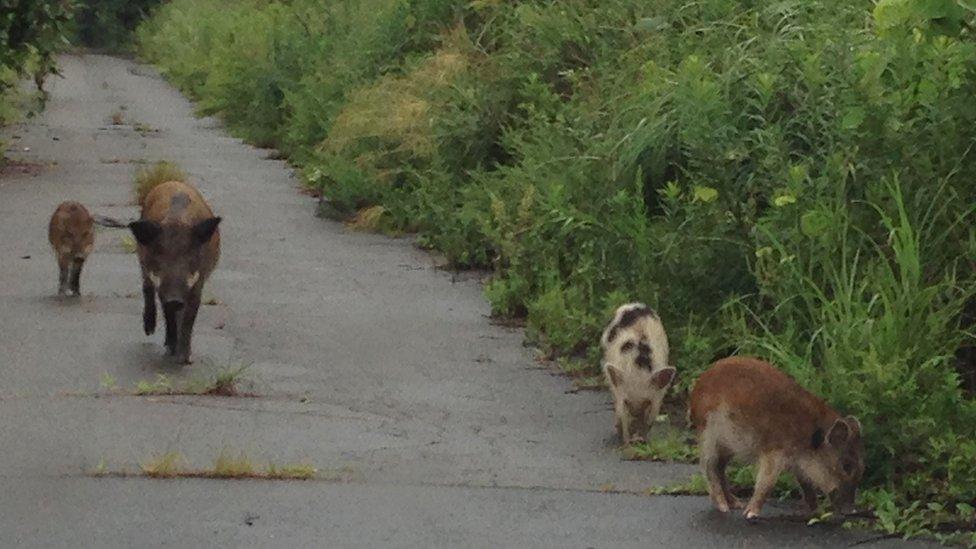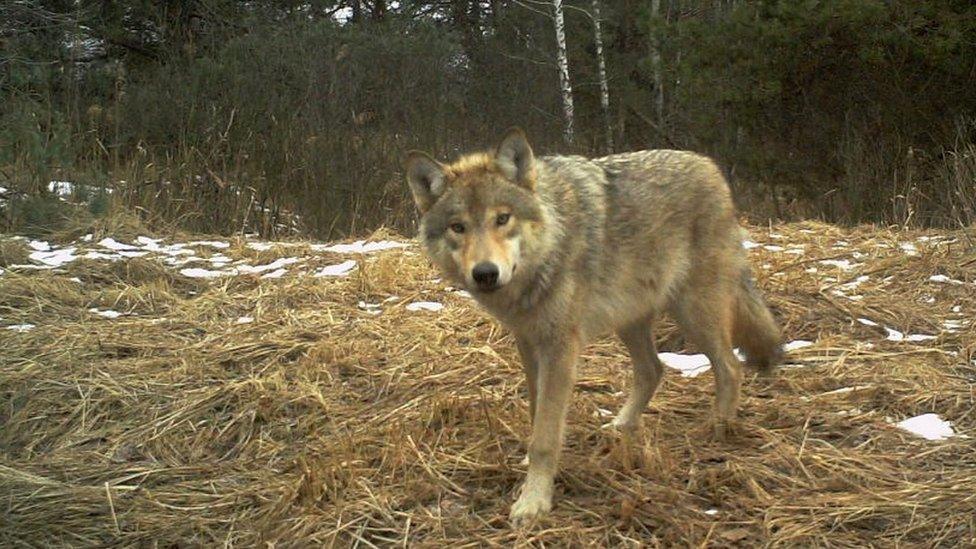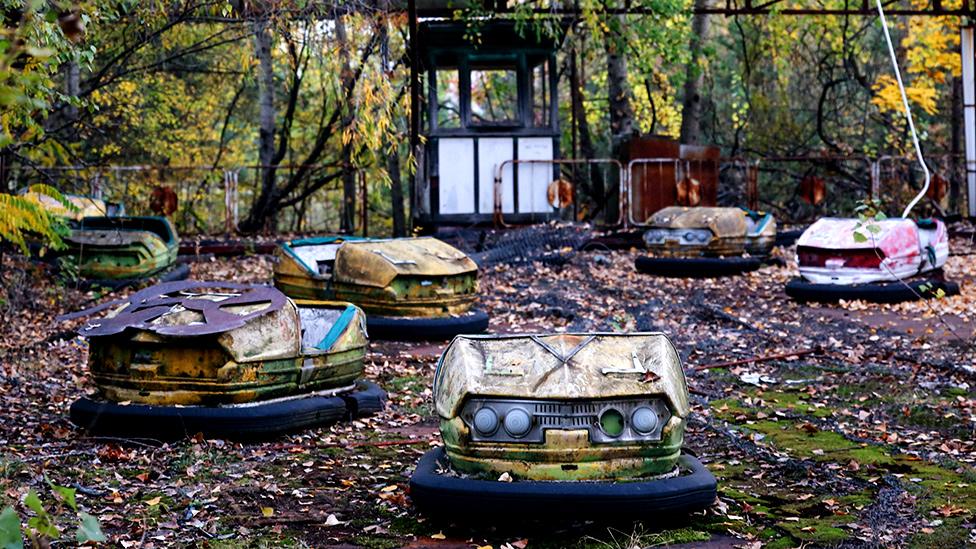Fukushima disaster: Tracking the wild boar 'takeover'
- Published

Wild boar have thrived in Fukushima's abandoned towns
"Once people were gone, the boar took over," explains Donovan Anderson, a researcher at Fukushima University in Japan.
His genetic study of the wild boar that roam in an area, external largely abandoned after Japan's 2011 nuclear disaster - has revealed how the animals have thrived.
Using DNA samples, he also discovered that boar have bred with domestic pigs that escaped from farms.
This has created wild pig-boar hybrids that now inhabit the zone.
"While the radiation hasn't caused a genetic effect, the invasive domestic pig species has," Mr Anderson explained.

Spotted wild boar are indicative of the interbreeding with domestic pigs following the 2011 disaster
The disaster at Fukushima's nuclear power plant was caused by the biggest earthquake ever to hit Japan. A gigantic wave surged over defences and flooded the nuclear reactors. Subsequently, a zone surrounding the damaged plant - akin to Chernobyl's exclusion zone - was evacuated.
The findings, published in the journal Proceedings B, paint a biological picture from a vast experiment that was caused by a nuclear disaster. The scientists used DNA to track the legacy of the event on the landscape - finding out what happens to wild animals in a radiation-contaminated area that is suddenly deserted by humans and, at the same time, invaded by domestic livestock.
Examining the DNA of the wild boar and escaped domestic pigs showed that what researchers called a "biological invasion" could be seen in the boar's genes.
It also revealed that those domestic pig genes have been gradually "diluted" over time.

Lack of hunting by humans may have contributed to the success of wolves in the Chernobyl exclusion zone
"I think the pigs were not able to survive in the wild, but the boar thrived in the abandoned towns - because they're so robust," explained Donovan Anderson.
So, he said, while the evacuated area was the origin of this hybridisation, or cross-breeding, the hybrid pigs then go on to breed with wild boar. As Prof Shingo Kaneko from Fukushima University's Institute of Environmental Radioactivity put it: "Those invasive genes are disappearing, and the natural situation is coming back."
Since 2018, people have started to move back into previously abandoned areas near Fukushima.
"Humans are really the only predators for these wild boar," said Mr Anderson. "So as people come back, it'll be really interesting to see what the boar do."
Follow Victoria on Twitter, external
Related topics
- Published14 February 2019
